Michael Connelly: the star of noir
After failure and rejections came a run of 33 blockbuster crime novels. Michael Connelly reveals how he cracked it.
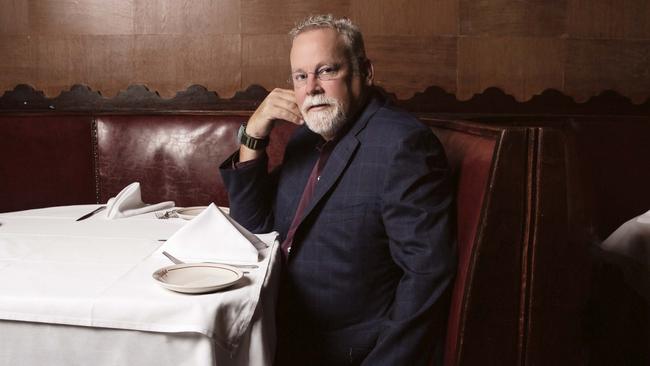
Michael Connelly is standing in a mock police station at Red Studios in Hollywood watching the filming of the TV series Bosch, named after the hero of his crime novels, detective Harry Bosch. As the actors, technicians and cameramen swarm over the set they nod to Connelly, who’s standing quietly in the background. The studio sits on the same lot frequented by director Quentin Tarantino and has seen the filming of a generation of Hollywood staples from I Love Lucy to Who Framed Roger Rabbit and music videos from Michael Jackson to Madonna. After the scene is shot, the big man with the white beard smiles and shares his favourite memory of seeing his gritty literary characters come to life on the screen.
“For me the highlight of the whole exciting journey of this show was in season three when they filmed a scene from my very first book [The Black Echo in 1992], when this kid named Sharkey saw a body being dumped,” he says. “When I wrote that scene I was zero from two [attempts at writing a novel]. I was on my last chance and I actually wrote that book in a walk-in closet that I used as my office in those days. I wrote that scene not knowing if it would ever be published — so to see it being filmed all these years later was just incredible.”
It’s a story that shows just how close Connelly came to never fulfilling his dream of becoming a crime writer — much less one of the genre’s biggest names. When the 63-year-old arrives in Australia next month to promote his new book The Night Fire, it will take a Connelly- sized leap of imagination to believe he ever had a shaky start in this profession. His 33 novels have sold more than 74 million copies worldwide and been translated into 40 languages. He has won almost every award that a crime writer can win, has had Clint Eastwood make a movie of one of his books, and now the TV show Bosch, on which Connelly is executive producer, is filming its sixth series.
His books are best known for their central character Bosch, a relentless, hardworking, tough-but-soft homicide detective who delves into the dark underbelly of the City of Angels to solve the grisliest crimes, often in the face of obstacles and politics from within the LAPD. The detective, who stars in 21 of Connelly’s books, has become such an LA institution that tourists can take a Harry Bosch walking tour to visit the dive bars and favourite haunts of the fictional sleuth.
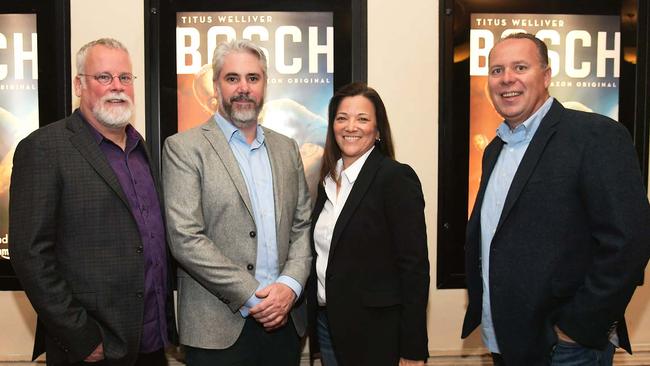
A barman called Sonny adjusts his red tunic and pours an ice cold martini in the bar of Hollywood’s oldest and most famous restaurant, Musso & Frank on Hollywood Boulevard. It’s a busy Sunday night and a small army of waiters is carrying trays of food across the wood-panelled room where the friendly vibe is, as Orson Welles once said of the place, “like being in the womb”.
“Yes, Michael Connelly is a friend of the owner of this place,” says Sonny as he throws an olive into the martini. “Connelly sets lots of his stories in this place. But personally I prefer Raymond Chandler, who used to sit up at the other end of this bar and drink with F Scott Fitzgerald.”
It’s a comparison that would not offend Connelly. Chandler, a pioneer of American detective fiction in the ’30s and ’40s, was one of two reasons Connelly became a crime writer. When he was still a college student in Florida he watched The Long Goodbye, Robert Altman’s LA noir adaptation of Chandler’s famous novel. Connelly was transfixed; it was life-changing, he says. He went back home and devoured every Chandler novel in a matter of weeks, gripped by the “artistry” of the plots, the gritty portrayal of LA and the fictional private eye Philip Marlowe. “That’s what triggered it,” he says. “I decided I wanted to be a novelist but not just any novelist, it was very specific: I wanted to write crime novels.”
Connelly says his interest in the crime world was also triggered by what he calls a “random moment” when he was 16 years old. He was driving his VW Beetle home from his night-time job as a dishwasher in Fort Lauderdale, Florida, when he spotted a man running at full speed. Suddenly the man peeled off his shirt and bundled it around something in his hand before shoving the lot into a hedge and running away.
Connelly stopped the car and retrieved the shirt to find that it was wrapped around a gun. He later learned the man had shot someone in the head, and Connelly ended up spending the night at the city’s police station being questioned. “I spent a whole night basically with this gruff detective and it was very interesting to me,” he says. “It made a big impression.”
When Connelly, one of six siblings, told his parents that he wanted to be a crime writer he expected them to be disappointed. He was deep into a degree in construction engineering at the time, with the aim of joining his father’s building business. “In the end the family took it pretty well,” he says. “My father said most people who want to be writers get a literary degree and try to write but if you want to do crime fiction why not become a journalist and try to get on the police or court beat, and then you’re in the world you want to write about. That was good advice so that was what I did.”
He landed a job at a small newspaper in Florida’s Daytona Beach and eventually moved to Fort Lauderdale at the height of the state’s cocaine crime boom. “The biggest crime story I ever wrote in Florida was about a serial killer from Australia called Christopher Wilder,” he says, referring to the man known as the Beauty Queen Killer, who murdered at least eight women during a wild crime spree across the US in 1984. “Wilder lived in south Florida for a while and used to race cars and drew a lot of people towards him. But women started disappearing and eventually he went on this fatal cross country trip, kidnapping and killing even more women until he was killed in a gun battle.”
Connelly was a reporter by day, at night trying his hand at being the crime writer he dreamt of. He completed two books, but in his own judgment they were not good enough and he didn’t even submit them for publication. “No one has ever seen them,” he says. “They were full of interesting details but there was not enough about character. I placed them in a box somewhere and that’s where they still are. I think they got what they deserved.”
One day, he was given an assignment inside the city’s detective bureau reporting on how they were tackling a surge in the city’s murder rate. He spent a week with the sergeant in charge of homicide and watched first-hand how detectives deal with their difficult and often grim jobs. “I saw how the job affected him,” Connelly says of the sergeant. “His character came out and I realised I didn’t have this in my first two efforts at writing a book; I thought that if I try a third one I need to include this and find the aspects of this guy. It was a really important part of my maturation as a crime writer.” Only much later did he realise this homicide detective would be one of the inspirations for the character Bosch.
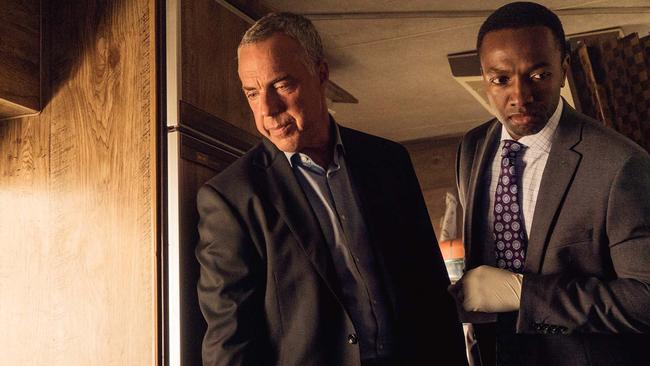
Connelly’s first big break came through a non-crime story — but it was one that nevertheless took an emotional toll on him. In August 1985, Delta Air Lines flight 191 crashed and burst into flames in Dallas after taking off from Fort Lauderdale, killing 137 people. Twenty-eight people survived the impact and subsequent inferno and Connelly, along with two other reporters, wrote the harrowing story of their escape and the mental scars they still carried. The story was nominated for a Pulitzer prize and it landed Connelly a job as a crime writer on a big city paper, the Los Angeles Times. He was 29 years old, married to his college sweetheart Linda McCaleb, rising fast in the world of journalism but going nowhere as a crime novelist.
As luck would have it, the day before he landed in LA to start his new life, there was a spectacular bank heist that held the city in thrall. “It was these bank robbers who tunnelled under a street and then up into a bank on a July 4th weekend,” he says. “They spent all weekend in there and then they were gone. The planning and execution of it was just a marvel and that made it a big story.” Connelly decided to write another novel based around this plot. After his two previous attempts he told himself that this would be his last chance.
He created the character of Bosch, who he says was an amalgam of many detectives he had met. Publishers knocked the manuscript back four times before the book was finally published in 1992. The Black Echo was successful but it wasn’t until 1994, after his third book was published, that he felt confident enough in his skills to leave journalism and make a living writing crime. It marked the beginning of a formula that has seen him turn out one new novel — and sometimes more — every year since then.
Connelly rarely makes up his central plots. Instead, he talks to real detectives and lawyers and finds interesting real-life crimes to base his plots on. Then he throws Bosch into the middle of them, making all the characters as believable as they are shocking, and creates a gripping narrative around it all.
That’s why in the end, Connelly says he is a journalist at heart. “I am a reporter and these things in my books really come from me seeking out a true story,” he says. “Of course I will tweak it with fiction but if I didn’t have cops telling me about their stories and their lives I don’t think I could create this on my own.”
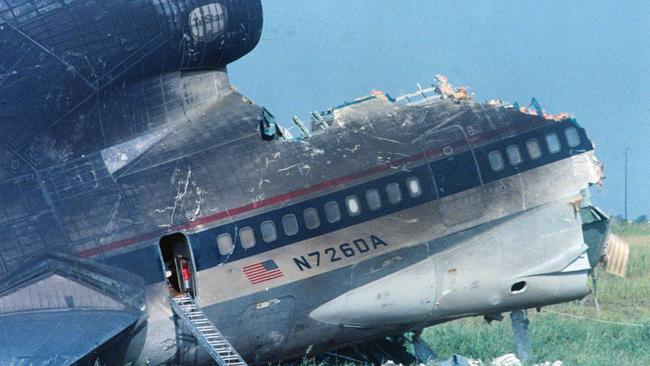
Many of Connelly’s books, including the forthcoming The Night Fire, see Bosch eating and drinking at Musso & Frank. The restaurant is a pilgrimage for Connelly fans, so much so that the owner invited Connelly to help celebrate the venue’s 100th birthday in September when it became the first restaurant to receive its own star on Hollywood Boulevard. “One of the tricks in my books is to connect Bosch to the reader through his memories of the past, but LA is a city that bulldozes its past so there are not a lot of places left,” he says. “There are a few still here [like Musso & Frank] so I put Bosch in them.’’
Some years ago, however, he realised he had a problem with his central character. For each new novel Connelly had taken the unusual step of making Bosch age in real time. “I made him older than me so he would have been in the Vietnam War — and now I have to pay the piper because he is getting to the point where he is too old to be realistic,” he says. “He is not a cop anymore and he’s taking on a mentoring role in the more recent books. So if I’m going to keep writing I had to find someone who can extend beyond Bosch’s reach.”
The solution came in the most unexpected way. “I got a minor thing wrong in a book and one day a detective who I didn’t know sent me an email saying, ‘I really like your books but…’” Connelly invited the detective, Tim Marcia, to breakfast. They became friends and soon Connelly met Marcia’s detective partner, a sharp-tongued, tough and dedicated young woman named Mitzi Roberts. She told him about her experiences as a woman in the blokey world of the LAPD and about the personal costs of doing her job. The more Connelly talked to Roberts, the more fascinated he became. “She really has a dedication to stand up for the victims. She gets emotional about it — like, ‘What happened here is not right and I’m going to find out who did it.’ That’s like Harry Bosch. It struck me that here was an heir to Harry Bosch.”
So the real-life Roberts became the inspiration for Connolly’s new fictional detective, Renée Ballard, a tough, driven detective trying to prove herself in the dog-eat-dog world of the LAPD. Ballard debuted in Connelly’s 2017 book The Late Show, in which she was effectively demoted to the midnight shift after filing a sexual harassment claim against her boss. In The Night Fire, Ballard is assigned to investigate the burning death of a homeless man whose tent was set alight as he slept. The plot is based on a true incident in LA. Connelly says there have been another two such fatal fires since he wrote the book and that Roberts is now working on the case to determine if a serial killer is on the loose.
Roberts is currently a consultant on the TV series Bosch and Connelly sends her everything he has written about Ballard to check that his depictions are realistic. Each week two homicide detectives come into the writer’s offices at Red Studios and pore over the scripts to ensure they are believable, and to talk to the team of writers, including Connelly, about the underbelly of LA.
After our interview in his office at Red Studios, Connelly shows me the room where the show’s plots are finalised. There are coloured cards pasted on the walls signifying each scene of each episode. Connelly explains the process and his part in it, alongside fellow executive producer Henrik Bastin. “Everyone is aware that the series is based on books I wrote, so it’s good for morale and good for everything that they see my face down here,” he adds, in a manner that is both gruff and friendly at the same time. His 22-year-old daughter Callie, a recent graduate from film school in LA, also works on the show.
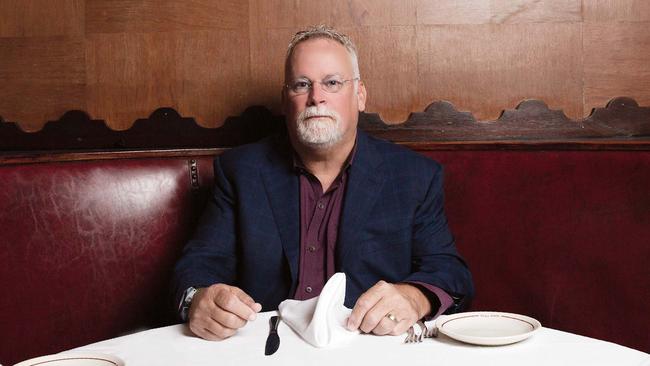
On the day I meet him, Connelly will write a summary plot of a potential seventh season of Bosch to submit to the network Amazon Prime Video. Despite the show’s success he says he will always be a novelist at heart. He has no plans to kill off his ageing hero, and is enjoying the new journey with Ballard. He has other projects on the go, too. Early this year he produced a true crime podcast called Murder Book that dives into a 30-year-old Hollywood cold-case. He plans to do more. “I loved doing that because it was really straight journalism to me and it was a true story so I had to stay within the facts, I couldn’t go off and make stuff up. After 25 years [out of journalism], even though it is spoken journalism, it was really fun to do. But I never want to lose sight of the fact that I am a book writer first, even with this TV show and podcast.”
He is already about halfway through his next book, called Fair Warning, in which neither Bosch nor Ballard make an appearance. “It is about a new character, it’s about a journalist,” he says. While he tries to avoid being overly political in his books, he says the inspiration was Donald Trump’s attacks on the so called “fake news” media, and the impact of this.
In part because of his other commitments and the requirement in his contract to write one book each year, Connelly starts writing most days at around 4.30am. “I like to start as early as I can and write before the city becomes awake,” he says.
Awake or asleep, LA in all its gruesome glory is the perennial star of his books — it’s a sunny place for shady people, as his LA Times editor used to say. As long as he is writing books about crime, Connelly knows he will never run out of stories in his adopted city. “I’m lucky I write about Los Angeles,” he says with a smile. “It is 100 different cities in one and I can explore a new place each time.”
The Night Fire by Michael Connelly (Allen & Unwin, $32.99) is out October 21. Connelly will tour Brisbane, Sydney, Melbourne and Canberra, November 3-7.


To join the conversation, please log in. Don't have an account? Register
Join the conversation, you are commenting as Logout